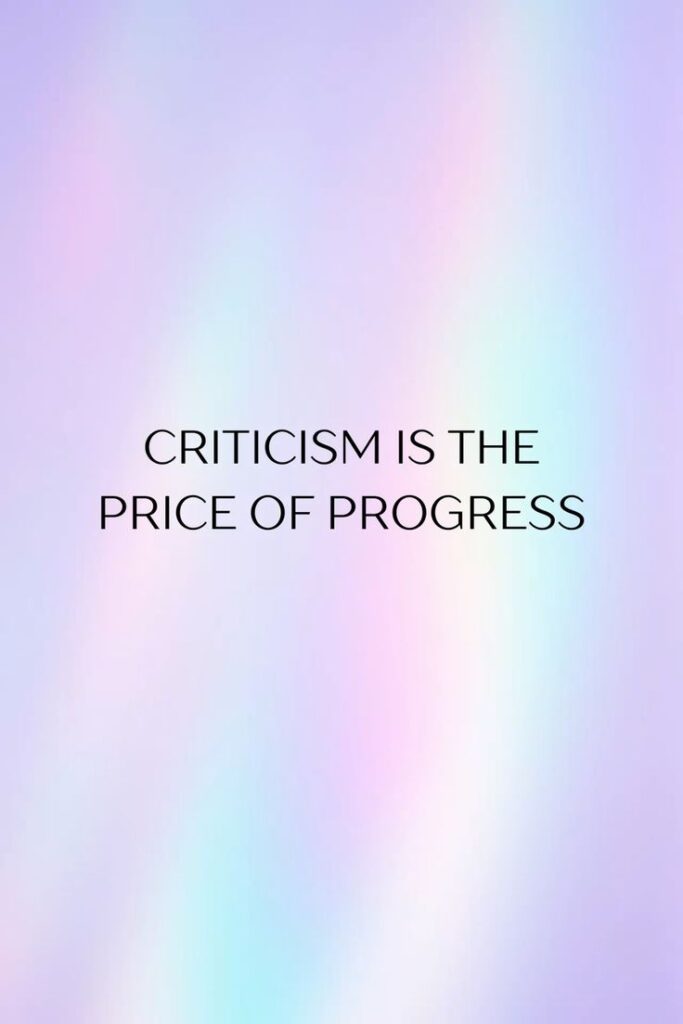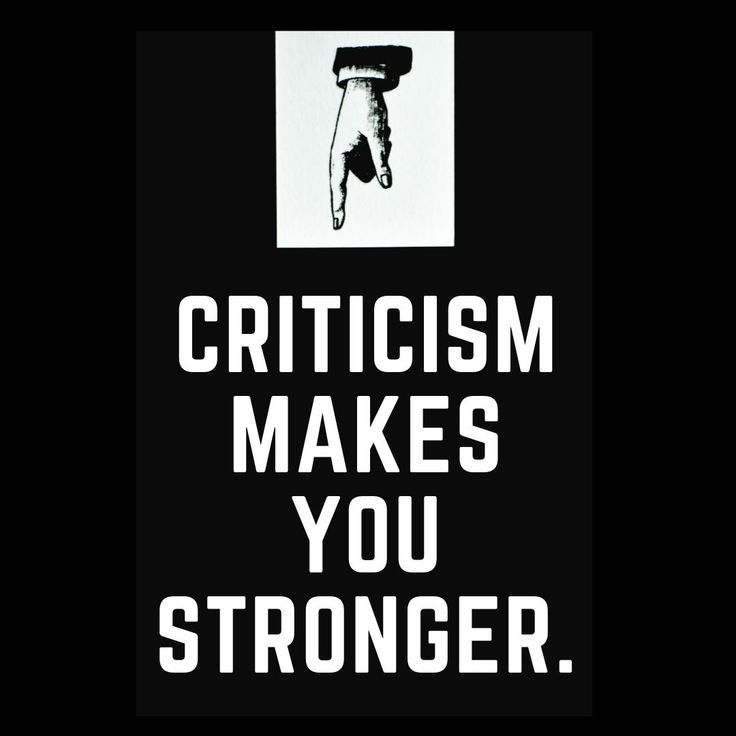
Criticism is one of the few guarantees in life. No matter who you are, where you live, or what you do, you will encounter criticism at some point. For many, criticism feels like a personal attack, a judgment that stings and lingers in the mind long after it’s given. However, learning to take criticism as motivation can be one of the most powerful shifts you make in your personal and professional life.
In this blog, we’ll explore why criticism hurts, how to reframe it, and how to turn every bit of feedback into fuel for your growth, success, and personal development.
Why Does Criticism Hurt?
Before we learn how to use criticism as motivation, it’s important to understand why it affects us so deeply.
1. Our Ego Gets Threatened
Most of us are naturally defensive when our abilities or character are questioned. Criticism challenges the image we hold of ourselves, threatening our sense of competence and self-worth.
2. Fear of Failure and Rejection
Humans have an innate desire to be accepted and validated. When someone criticizes us, it may trigger a fear of not being good enough or being rejected by others.
3. Emotional Triggers from the Past
Sometimes, criticism touches on wounds or insecurities we’ve carried for years. It can remind us of earlier failures, making the feedback feel even more painful.
Understanding these emotional reactions is the first step in disarming their power and preparing ourselves to receive criticism constructively.
The Difference Between Constructive and Destructive Criticism
Not all criticism is equal. To use criticism as motivation, we need to distinguish between constructive and destructive criticism.
Constructive Criticism
Intended to help you improve Specific and actionable Delivered with respect Focuses on behavior or outcome, not personal attacks
Example:
“Your presentation was informative, but adding more visuals could make it even more engaging for the audience.”
Destructive Criticism
Intended to hurt, belittle, or control Vague or overly harsh Focuses on personal flaws Often emotional or disrespectful
Example:
“You’re terrible at presenting. You always bore people.”
Once you learn to differentiate the two, you can extract value from the former while protecting yourself from the latter.
The Mindset Shift: From Victim to Student
The key to using criticism as motivation lies in your mindset. Instead of seeing yourself as a victim of harsh words, see yourself as a student eager to learn.
Victim mindset: “Why are they attacking me? This is unfair.” Student mindset: “What can I learn from this? How can I improve?”
This shift doesn’t happen overnight, but with practice, it can become your default reaction.
10 Strategies to Take Criticism as Motivation
1. Pause Before Reacting
Our immediate reaction to criticism is often emotional. Take a moment to breathe, listen, and absorb what’s being said. Avoid interrupting or defending yourself right away. A calm pause allows your rational brain to process the feedback instead of reacting emotionally.
“Between stimulus and response there is a space. In that space is our power to choose our response.” — Viktor Frankl
2. Separate Emotion from Information
Focus on the content of the feedback, not the tone or delivery. Even if criticism is delivered harshly, there may be valuable information hidden within. Train yourself to extract the useful insight and discard the unnecessary emotional baggage.
3. Ask Clarifying Questions
If the feedback is vague, ask for specifics.
“Can you give me an example?” “What part do you think needs the most improvement?”
This not only shows maturity but also helps you gather actionable advice.
4. Express Gratitude
Though it might feel unnatural, thanking someone for their feedback shows emotional strength. It encourages open dialogue and demonstrates your willingness to improve.
Example:
“Thank you for sharing that. I’ll definitely work on it.”
5. Use Feedback as a Mirror
Criticism can be an excellent mirror reflecting areas of growth you may not have seen. Instead of viewing it as judgment, view it as an opportunity for self-awareness and personal growth.
Ask yourself:
Is this feedback valid? Have I heard similar comments before? What patterns can I notice?
6. Develop a Growth Mindset
Psychologist Carol Dweck’s concept of the growth mindset is crucial here. People with a growth mindset believe that skills and intelligence can be developed through effort, learning, and persistence.
Fixed Mindset: “I’m not good at this.” Growth Mindset: “I’m not good at this yet, but I can improve.”
Criticism becomes fuel for growth when you adopt this perspective.
7. Set Improvement Goals
Transform the feedback into concrete goals.
For example, if you’re criticized for poor time management:
Create a daily schedule. Set reminders. Review your progress weekly.
By setting actionable goals, you move from passive recipient of criticism to active architect of improvement.
8. Surround Yourself with Honest People
The people who care about you will give you honest feedback because they want you to succeed. Create a circle of mentors, colleagues, and friends who will challenge you respectfully.
Remember:
“True friends stab you in the front.” — Oscar Wilde
9. Learn from Role Models
Many highly successful people credit their growth to the criticism they received.
Michael Jordan: Cut from his high school basketball team, he used that rejection as motivation to become one of the greatest athletes ever. Oprah Winfrey: Fired early in her career, she used the criticism to refine her skills and vision.
Study how your role models handled criticism and emulate their resilience.
10. Practice Self-Compassion
While embracing criticism is powerful, it’s important to balance it with self-compassion. Don’t let negative feedback crush your self-esteem. Acknowledge your progress, forgive your mistakes, and remind yourself that learning is a lifelong journey.
Real-Life Scenarios: Turning Criticism into Motivation
Scenario 1: Workplace Feedback
Your manager tells you that your recent project lacked attention to detail.
Old Reaction: Feeling embarrassed, angry, or defensive. Motivated Reaction: Thank your manager for the feedback. Review your work process. Create a checklist for future projects to ensure higher accuracy.
Scenario 2: Relationship Criticism
Your partner says you don’t listen actively during conversations.
Old Reaction: Feeling accused or arguing. Motivated Reaction: Acknowledge their feelings. Practice active listening techniques. Ask for feedback after applying changes.
Scenario 3: Public Criticism
A customer posts a negative review about your business.
Old Reaction: Feeling attacked or lashing out. Motivated Reaction: Apologize for their experience. Investigate the issue. Implement changes to improve customer satisfaction.
The Benefits of Using Criticism as Motivation
1. Accelerated Growth
Feedback highlights areas you may overlook. When used wisely, it fast-tracks your development.
2. Emotional Resilience
The ability to handle criticism calmly boosts your emotional intelligence and self-control.
3. Improved Relationships
Being open to feedback fosters trust and open communication in personal and professional relationships.
4. Increased Confidence
Paradoxically, embracing criticism can build confidence. You become less afraid of mistakes because you see them as opportunities.
5. Leadership Development
Leaders who welcome feedback inspire teams to be open, honest, and innovative.
Common Myths About Criticism
Myth 1: “Criticism means I’m not good enough.”
Truth: It means you have room to grow, just like everyone else.
Myth 2: “If someone criticizes me, they don’t like me.”
Truth: Often, people criticize because they care or have expectations.
Myth 3: “I should avoid criticism to protect my self-esteem.”
Truth: Shielding yourself from feedback may keep you comfortable but stunts your growth.
When to Ignore Criticism
While most feedback can be useful, not all criticism deserves your energy. Ignore:
Personal attacks without constructive advice. Criticism from people who lack credibility or expertise. Malicious or envious remarks intended to harm rather than help.
Conclusion: Turning Criticism Into Your Superpower
Learning to take criticism as motivation is not a one-time skill but a lifelong practice. It requires humility, emotional maturity, and a commitment to self-improvement.
Instead of seeing criticism as a threat, see it as free coaching. The world is filled with teachers — some kind, some harsh — but all can offer lessons if we choose to listen.
